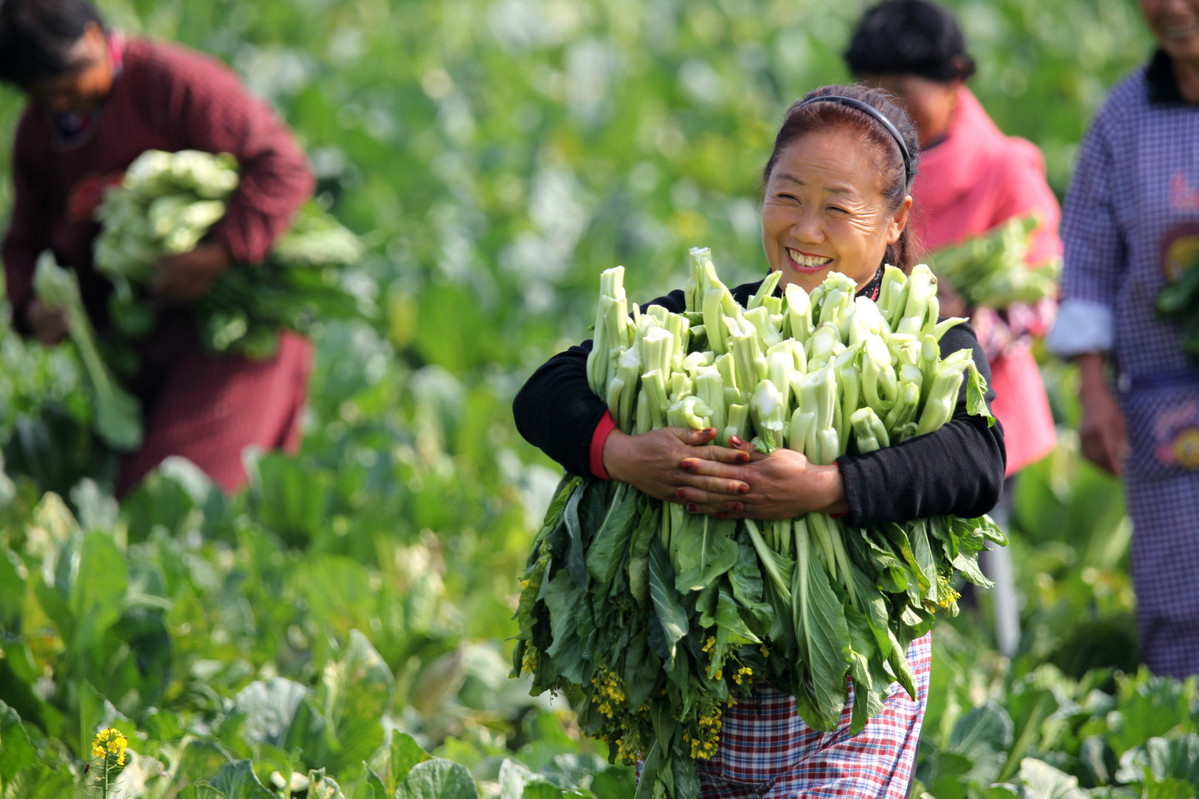Green development sows seeds of prosperity
By Hou Liqiang | China Daily | Updated: 2019-11-11 09:08

Residents of isolated communities in the Dabie Mountain range are seeing incomes rise as agribusiness flourishes. Hou Liqiang reports from Xinxian, Henan, and Yuexi, Anhui.
For more than a decade, Cen Xinshun worked as a martial arts teacher in private schools outside of his isolated home village.
When he left in 1995, he was not alone; for decades, residents of Yangtudun in Xinxian county, Henan province, had made efforts to leave the mountain-encompassed village in search of better opportunities in the outside world.
However, in 2013, Cen bucked the trend by returning to the village, which was populated mainly by the elderly and left-behind children and had become increasingly isolated as a result of a lack of sealed roads. He started a business completely unrelated to his previous work - running a farm that grows and supplies organic agricultural produce.
The 39-year-old is just one of thousands of people who have devoted themselves to exploring the development potential of green agriculture in the rural areas of the Dabie Mountain range, a poverty-stricken region with high forest coverage and an unspoiled environment.
He returned home after working in Zhengzhou and Xinyang, also in Henan, and opened a restaurant in urban Xinxian in 2005. While running the business, he realized that demand for organic food in the restaurant trade was high, so in 2013, he decided to start a small farm to supply quality foodstuffs to customers.
He didn't expect his venture to be so successful that it would generate annual revenue of more than 20 million yuan ($2.8 million) and the farm would expand to cover 330 hectares.
In addition to traditional local crops such as rice, Cen grows more than 60 types of vegetables and raises cows and chickens. The farm also has facilities to process its produce.
"We employ a circular agricultural model (feeding the cows and chickens with straw and crops harvested from the farm and then using their droppings as manure) and never use chemicals," he said.
Though the produce has not been officially certified as organic, Cen said it has gained widespread recognition. For example, the farm's rice sells for 24 yuan per kilogram, which is more than double that of many other strains in the domestic market.
"We don't have to look for customers. Instead, they come to us," Cen said.
While the high demand provides impetus for the development of his business, he said his success is also due to strong support from the local government, which provided about one-fifth of the farm's total investment of 50 million yuan in the form of low-interest loans.
























